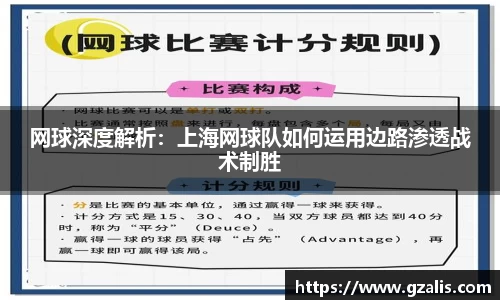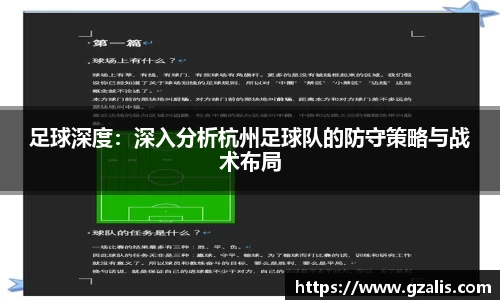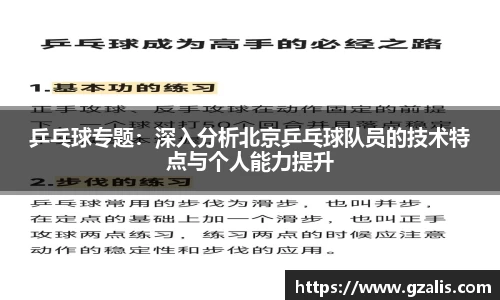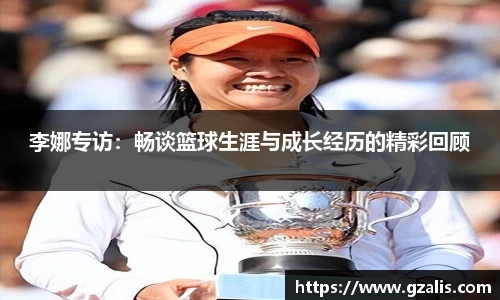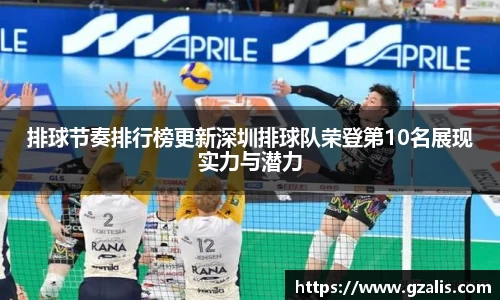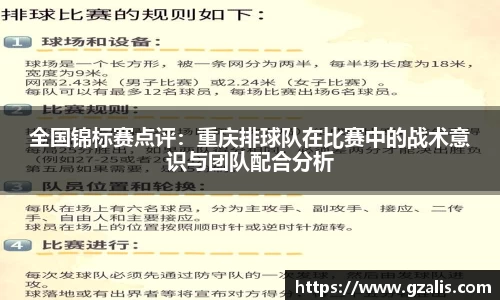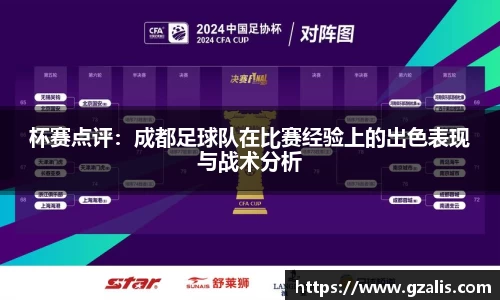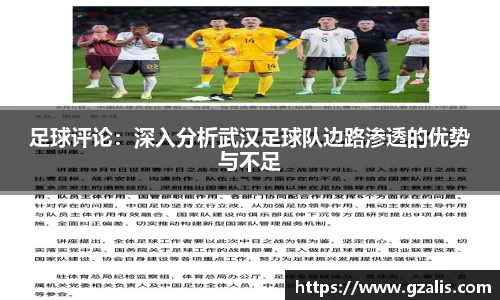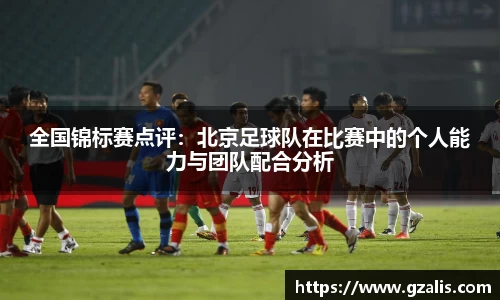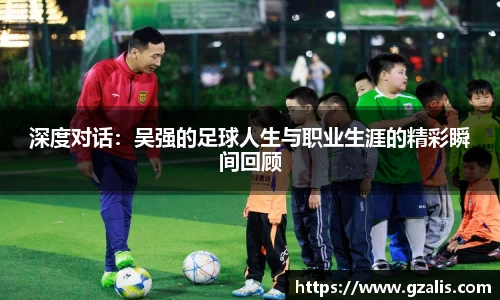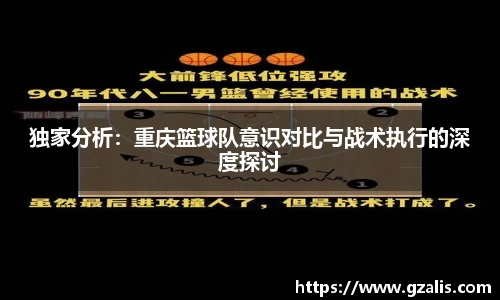整体战术执行的优缺点
南京网球队在近期的精英赛中展现了出色的战术执行力,特别是在对手强大的情况下,能够通过有效的团队配合和个人能力来争取胜利。然而,在某些关键时刻也暴露出了一些不足之处,导致未能完全发挥出应有的水平。本文将从四个方面,对南京网球队在战术执行上的精彩表现与不足进行详细分析。
首先,南京网球队在比赛中的整体配合上表现得十分默契,队员们之间能够快速理解彼此的意图,这为战术的实施提供了有力支持。其次,在进攻端,通过灵活多变的打法,球队有效地打乱了对手的防线,为取得分数创造了良好的机会。但与此同时,也存在着部分队员在关键分上的决策失误,使得本可以获得更高分数的机会白白浪费。此外,在防守策略上,虽然有时能够做到及时反应,但仍显得略显被动。这些因素共同影响了南京网球队最终在比赛中的表现。
团队配合与默契程度
在精英赛期间,南京网球队展现出了较强的团队配合默契。在比赛中,各个队员对于战术安排和场上动态都有着清晰的认识,相互之间能够迅速做出反应。例如,在与对手展开激烈对抗时,队员们常常能做到及时补位,有效地形成联防体系,从而限制对手进攻。同时,通过不断地传球与跑动,为每一次进攻创造最佳条件。
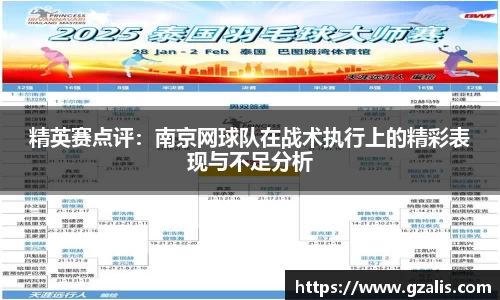
此外,每位选手在场上的角色定位也得到了很好的体现。在发球、接发球以及网前抢攻等环节,不同位置的队员能够根据具体情况作出相应调整。这种无缝衔接不仅提高了整体效率,更增强了团队凝聚力,使得每一位成员都能感受到自己是队伍不可或缺的一部分。
然而,有时候这样的默契也会因为某些突发情况而受到挑战。当对方以超预期速度展开进攻时,南京队部分选手可能出现沟通不畅或判断失误的问题,这使得原本牢固的防线出现漏洞。因此,加强临场应变能力,将是未来提升团队合作的重要方向。
进攻策略与变化多样性
南京网球队在此次赛事中的进攻策略展现出了丰富多样的一面。教练组充分利用每位选手独特的技术特点,根据不同阶段调整战术安排,使得攻击方式既具侵略性又难以捉摸。比如,同时运用长球、短球以及斜线球等打法,让对方防守陷入困境,为取得主动权创造了极大便利。
同时,在人员轮换方面也相当灵活,通过适时替换状态不佳或者体力透支的选手,有效保持整场比赛中的高强度输出。此外,对于不同类型对手采取针对性的进攻策略也是值得称道的一点,比如面对偏向于力量型选手时,更加注重快速灵活地调动,而面对技术型选手则侧重于控制节奏和角度。
不过,在某些情况下,由于过于追求变化,各类新奇打法频繁使用,也造成部分队员无法适应。例如,当某一套组合未能奏效时,有些选手并未及时调整心态,以至于错失更为简单直接但有效的方法。因此,需要进一步加强基本功训练,提高稳定性,以确保在各种情况下均能顺利实施战术。
防守端的问题与改进
Nanjing Team's defense has been a double-edged sword during elite matches. While they occasionally displayed solid defensive structures, such as timely interceptions and effective communication, there were moments of vulnerability that opponents readily exploited. A major concern has been the team's response time when faced with fast breaks from rivals; often, players found themselves out of position or unable to recover swiftly, leading to easy scoring opportunities for the opposing side.
The methodology employed in their defensive strategies also warrants attention. In certain situations, the team relied heavily on individual efforts rather than maintaining a cohesive unit. This tendency not only placed excessive pressure on standout defenders but also left gaps that could be capitalized upon by astute opponents. The imbalance between individual brilliance and collective responsibility must be addressed to foster a more robust defensive framework moving forward.
A potential avenue for improvement lies in enhancing pre-match preparations and post-match analyses. By meticulously studying rival tactics and incorporating diverse scenarios into training sessions, the team can bolster their adaptive capabilities during high-pressure situations. Building resilience through simulation drills will allow players to better anticipate dynamic shifts within games, ultimately strengthening their overall defensive performance.
心理素质及其影响
Nanjing Net Team's psychological resilience throughout the elite competition has played a pivotal role in determining game outcomes. During intense matches where pressure mounts, teams with stronger mental fortitude tend to perform better under stress. Nanjing’s players showcased commendable focus during crucial points in several matches, often rallying back from deficits due to unwavering confidence in their abilities.
However, there were instances when anxiety appeared to affect individual performances negatively. Key players sometimes succumbed to self-doubt after making mistakes or missing critical shots, which led to an overall dip in team morale. To counteract this trend, fostering a supportive environment where teammates encourage one another is essential for cultivating mental strength that can withstand competitive pressures.
Mental conditioning techniques such as visualization exercises and mindfulness practices may prove beneficial for athletes seeking enhanced composure on the court. Additionally, integrating sports psychologists into training regimens can help address specific concerns related to anxiety management and focus retention during high-stakes moments of competition.
总结与展望
Nanjing Net Team's journey through the elite competition highlights both impressive execution of strategies and areas needing enhancement. Their ability to work cohesively as a unit stands out as a significant strength; however, addressing key weaknesses—particularly in decision-making during critical phases—will be paramount for future success.
The path forward involves continuous adaptation and learning from experiences gained throughout this competition cycle. By reinforcing foundational skills while embracing innovative tactics tailored towards each opponent encountered, Nanjing will undeniably elevate its competitive standing within elite circuits—and perhaps secure greater accolades along the way.

